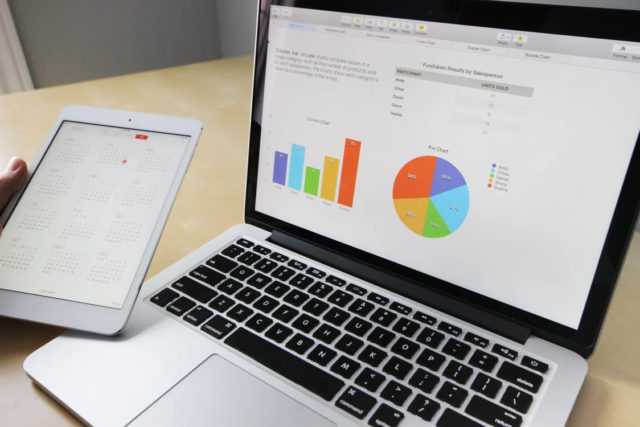
Having registered with one of the best online LLC formation companies to assist you with the legalities of establishing your own LLC company, and then having them get your enterprise in correct standing and officially recognized by your State, the next thing you need to do is set up a business account for LLC.
This is an essential part of running your own company, as the core purpose of operating a limited liability company is personal protection for yourself (and its other members, if you are in a partnership) in the unfortunate event of something going wrong with your business. This type of business formation is designed specifically to keep its owners safe.
A business being a limited liability company means that there is a dividing line, by law, between the financial dealings of the business and the personal finances of its owner/s. This way, should an LLC company go bankrupt or have any other negative legal claims made against it, all personal assets, such as the houses and cars, of theLLC company owners are protected in the event of seizures being made by debt collection agencies.
To not have a separate business banking account for your LLC company will make the entire principle of an LLC formation redundant.
Here’s the essentials on how to open a bank account for your LLC business.
How to open a business account for LLC services
- Personal identification;
- EIN verification letter;
- Articles of Organization;
- Operating Agreement;
- Beneficial Ownership Declaration.
Firstly, as with the opening of any other type of bank account for any reason, at your appointment, you will initially be asked to provide proof of your personal identification. This can come in the shape of your driver’s license, your State issued ID card, or your passport if you have one.
The next thing to have is proof of your EIN (Employer Identification Number) or your Social Security Number (SSN). You will have received your EIN from the Internal Revenue Service (IRS) while setting up your enterprise with the help of an online LLC formation service.
It’s very likely that the bank representative will tell you that your social security number is adequate in regards to opening a business account but it is very strongly recommended that you do not and instead use your Employer Identification Number. The use of the IRS-designated EIN to your LLC service ensures that the barrier is in place between the finances of your LLC business affairs and those of your personal financial dealings.
When an LLC member mixes the business revenue from their LLC with any of their own personal finances, this is what is known as ‘commingling’. To conduct any financial activity in this manner exposes the member to the exact liabilities that limited liability company structuring is designed to avoid in the first place. Commingling removes the protection of financial liability, so it is absolutely crucial to keep your personal monetary affairs isolated from all business related finances.
The next documented necessity required by your bank will be your Articles of Organization. The name for this piece of paperwork could also be referred to as a ‘certificate of formation’. This will be dependent on which state you and your LLC services are registered in, though Articles of Organization is the most common term. This will have been filed with the Secretary of State by your LLC formation service when initially setting up your enterprise. The bank will then make copies of all this formation documentation for them to keep with their records. The purpose of this is that it is legal evidence pertaining to the existence of your company.
Complimentary to this, the bank will also request that you provide them with your llc operating agreement. This is an especially important piece of documentation when opening a business bank account for an LLC formation. For a single-member LLC, it is of less significance but when a business is a multi-member LLC (which is the more common of the two entities), this lets the bank know exactly the signatures of the names of the people who have permission to make financial withdrawals from the business funds.
Note here that in the instance of MMLLCs, it is best to have every member present for the opening and setting up of a business-only bank account. Along with this, it is also worth bearing in mind that if it has been decided that each member of the LLC should have their own business credit card, then each member’s personal credit score will be the determining factor as to whether the bank will issue an individual with one or not.
Along with these, the bank will also need your Beneficial Ownership Declaration. This document asserts who is the financial beneficial owning member (or members) of the LLC company. An owning member is defined as anyone who owns or controls at least 25% of the LLC formation. The reason for the need of this document is that it is required by the authorities as a measure with which to counter money-laundering, tax evasion, and other serious financial crime.

LLC Service Checkbook
If you are a first-time entrepreneur and wishing to have a business checkbook for the bank account for your LLC formation, you may be interested to know that you can ask your bank representative to have your first checkbook begin with a number #1000 or higher. Beginning with #001 – the standard starting point for brand new checking accounts – you may feel less confident signing checks that have such low, early numbers, worried that this may make your dealings seem amateurish or that they will have a detrimental effect on customer trust in your brand. Requesting a higher numbered starting point, you can use checks that give the impression that you are more established and, therefore, be more confident when making transactions.
5 Recommended Business Banks for LLC Formation
- Chase HQ;
- Blue Vine;
- Lending Club;
- Bank of America;
- Wells Fargo.
It is also worth mentioning at this point that you will be able to have either a debit or credit card (or both) for your new LLC business bank account. Once issued to you, it is essential that you only use any debit or credit features for business activities and never for personal use.

































